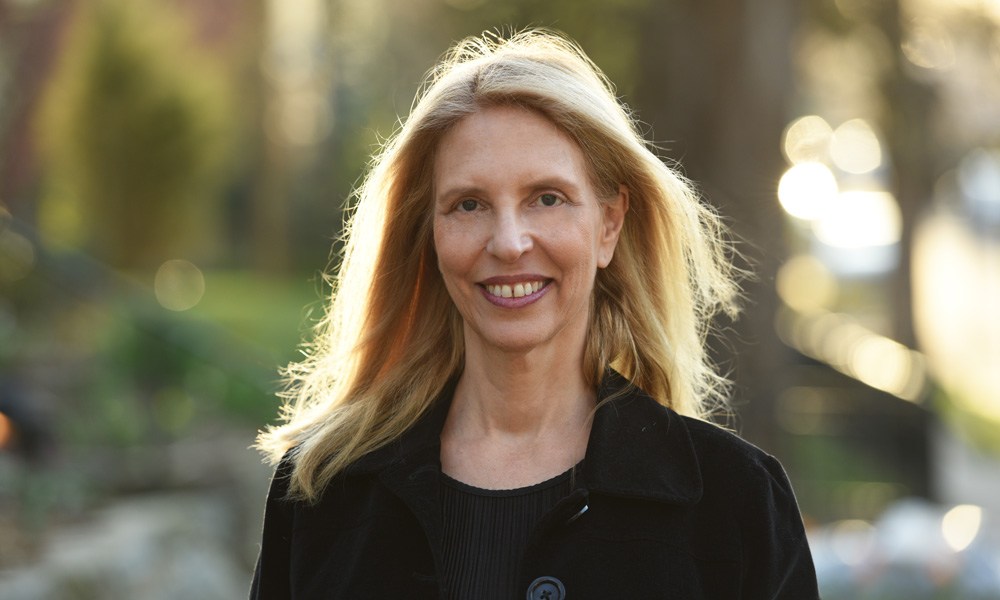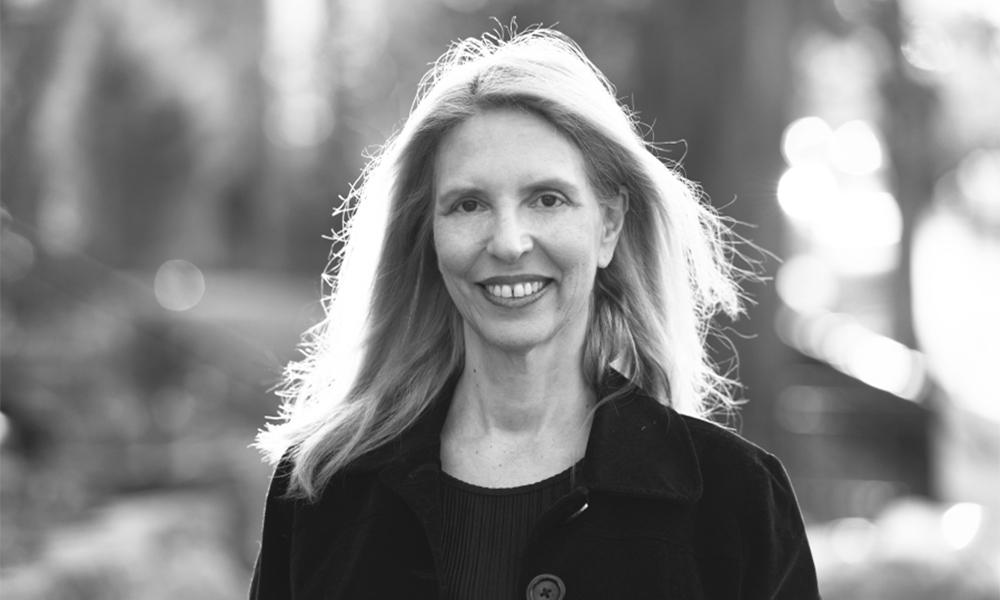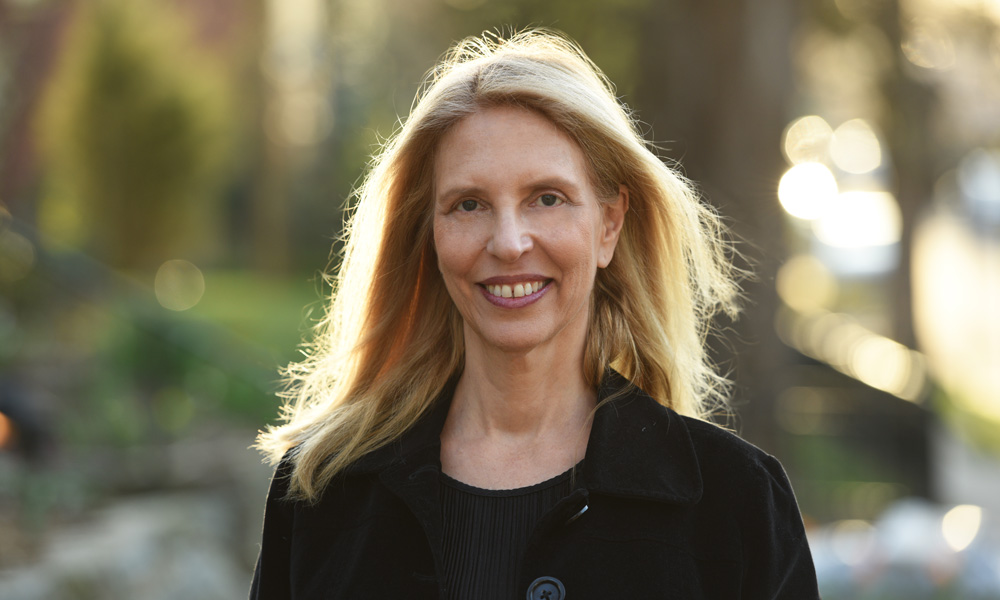Last month, more than 100 members of a white nationalist hate group, Patriot Front, marched on the National Mall here in Washington, DC. Dressed in khakis and caps, blue jackets and white face masks, they shouted “Reclaim America!” and “Life, liberty, victory!”
The offensive display went unnoticed by most. I never would have heard about it had a Facebook friend not posted an article about the rally from DCist, a respected and trusted local website. The city’s police were on hand; thankfully no one was hurt. But have we become so accustomed to this bigotry that the march received so little attention, failing to spark serious outrage?
Did the march deserve more coverage? There are at least two schools of thought. In one, the march doesn’t; after all, it was small, all sorts of extremists come to this city to demonstrate, and anyway, it’s better not to give groups such as this unnecessary attention. Another school of thought—where I prefer to err—is that it is critical to know your enemy in all of its faces and forms. Anti-Semitism is a malignant contagion, and we need to know who and what we are fighting. Every march, every attack, every credible threat deserves to be documented. That’s why I urge you to sign up for updates from Moment’s Anti-Semitism Monitor, which reports on national and international incidents of anti-Semitism by country and date—it’s the best tracker of its kind. Moment Institute Fellow and former U.S. Envoy to Monitor and Combat Anti-Semitism Ira Forman carefully vets and curates the list of incidents and writes periodic reports on his findings.
Anti-Semitism demands that we be wide awake. As one of our columnists, a 24-year-old Michigander, points out in this issue, it also requires us to be united in our efforts to combat it. But political polarization of anti-Semitism is making this nearly impossible. These divisions are on full display in this issue’s Conversation section and in the current installment of Moment’s Jewish Political Voices Project, our 18-month real-time study of the thoughts and evolution of engaged Jewish voters from battleground states. Read it—and explore the full project at momentmag.com/jpvp—for a window into the minds of genuine, well-meaning people. Like you and me, they are struggling to make sense of things that don’t always make sense. You should expect to encounter opinions and even assertions of fact with which you strongly disagree. That’s the point. As one of our readers, a psychiatrist, writes in a letter to the editor, “Learning what other Jews think and conclude is fiber for our brains. We learn by considering the views of others that we might not agree with. Their thinking is our food for thought.”
While we asked our featured voters, one of our columnists and our rabbis in the “Ask the Rabbis” section to discuss anti-Semitism, it’s vital to remember that this deeply ingrained prejudice is not the only disease of its kind—and Jews are not the only people who have been persecuted and murdered en masse. You might expect a magazine such as Moment to focus on Jewish issues (and we do a good job of this), but we are also compelled to spotlight pain and suffering among others. This is one reason we expend so much effort every year on our Daniel Pearl Investigative Journalism Initiative (DPIJI), named for the talented young journalist who was slain by terrorists more than 18 years ago. In this issue, our DPIJI Fellow John Beck writes about the Yazidi people, a long-persecuted religious minority in Iraq. In 2014, ISIS forced the Yazidis from their homes, massacring thousands and kidnapping even more. Yazidi women were enslaved, raped and married to ISIS soldiers. Many Yazidis fled the country, and those who remain are displaced, afraid to return to still unsafe towns and villages. Beck traveled to Iraq’s Kurdish mountains and Sinjar province to document the Yazidi’s plight.
The Yazidi story has powerful resonance for Jews—from their ties to an ancestral homeland to their struggle to maintain their faith and way of life in exile—and many observers have remarked on the similarities. Father Patrick Desbois, who has dedicated his life to documenting and marking the mass graves of Jews murdered in the Holocaust, has noted profound parallels between the Shoah and the Yazidi genocide: The Islamic State tried to annihilate everything associated with the Yazidis and their culture, just as the Nazis attempted to do to the Jews of Europe. “The famous poem penned by Pastor Martin Niemöller, ‘First They Came for the Socialists,’ applies to the Yazidi situation quite well,” Desbois has said. “Most people have acted only after the fact. Most people had never heard of Yazidis before, except a few area specialists and locals.” That’s why this story about a religious minority facing an uncertain future is so important to get out into the world.
One of the hallmarks of this magazine is the rich variety of topics that we fit between its covers. For a lighthearted look at the State of the Union—and individual states of unions—check out our story on Jewish voters in politically mixed marriages who rely on healthy doses of humor and denial to manage domestic tensions in this politically fraught era. For theater lovers, there’s Moment’s Europe editor Liam Hoare’s probing profile of playwright Tom Stoppard.This is the first interview Stoppard gave about his new hit play Leopoldstadt, a late-in-life exploration of his family’s Jewish past. Passover offerings include Moment literary contributor Robert Siegel’s interview with scholar and rabbi Vanessa Ochs exploring the history of the Haggadah (listen to the audio of this lovely conversation at momentmag.com/haggadah-history), the poem “Afikomen” and a “Talk of the Table” that delves into one of the holiday’s longstanding debates: Are rice and beans kosher for Passover?
Here we are, 45 years after Moment’s founding, thinking and debating, leading and following, listening and speaking, stepping back and moving forward, and capturing the myriad dichotomies and conflicts and joys within modern Jewish life and thought. Thank you for reading us, writing to us, sharing us, supporting us and joining us on this journey.







